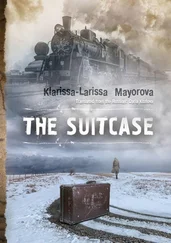Sveta spilled water onto the canvas. Frida gasped. Sveta’s hand had twitched, and she’d spilled too much. But after appraising, Sveta tipped the jar again, spilling even more. It’s not my job to analyze, she said. Dropping her paintbrush, she looked Frida in the eye. The wife of a poet, she explained, has three responsibilities: to feed him, to believe unconditionally in his genius, and to leave him alone. These posed no difficulty for her. Her ex-husband, Artem Muser (Hungarian parentage), an eminent philosopher and bassist for the rock group Rote Goat, had also required the three, though with each passing year addenda had emerged. The second principle was key. As long as she’d believed in Artem, the rest was a pleasure. But somewhere along the way, she had lost her faith. Don’t get me wrong, she said, Artem is great at what he does — he’s a success by anybody’s standards. But a genius is a genius. Would his philosophical oeuvre be contemplated a century from then? Would the music of his band be moshed to? The unlikelihood of either never bothered him. He was cruising. He’d built a solid reputation and was reaping the rewards. Ranked among the leading philosophers in the country based on a sensationalistic doctoral dissertation, he was happy to sit on panels about Schopenhauer’s toilet and be told by the sleaziest department chair imaginable that out of all introductory courses his was the quickest to fill to capacity. And it was enough that his band played the annual Ukrainian heavy-metal fest. Occasionally they gathered a good crowd in Kiev.
Sveta, however, had expected more. She began to regard Artem as a regular man — gifted, endowed with a strong will, but nothing extraordinary. And feeding a regular man was little pleasure. In this new light, a few other trifles had come to her attention: Artem was a shameless philanderer, never asked a single question about her existence, and mentioned her “barren womb” regularly. These revelations had coincided, quite fortuitously, with the arrival of Pasha.
Your uncle is a genius the likes of which are distributed over time and across the earth with an exceedingly spare hand, said Sveta. I was sure of this from the very start. Sveta’s gaze went coy. Do you want to hear how we met?
Frida nodded, her foot going numb.
It was actually in New York, and I probably shouldn’t be telling you this, but it was a July evening in ’93. My husband had dragged me to Renata Ostraya’s party. I really didn’t want to go. They’d had a brief thing, but that wasn’t the issue. I’d lost my appetite after a weeklong flu, and for me Renata’s parties were strictly about gastronomic potential. Unable to partake, I was forced to interact. For an hour or two I nodded beside Artem but was drawn back to the table. Its proximity comforted. Instead of sampling dishes, I sampled conversations, overhearing fragments, rarely of interest. That’s how I spotted Pasha. A group of men were having one of those rambling discussions about everything at once. They were impressed with one another, this was clear. But they were standing by the table and popping pigs in a blanket into their mouths. I began to eavesdrop, my attention entirely given over to the gawky man with the unkempt beard — he wasn’t like the rest. He was different. I was just standing there when one of them, a chubby man with a pink face and no eyebrows — you saw him last night, Andrei Fishman — turned to me and said, Want to join in, or are we blocking the sausages? Stupefied, I’d said, Sausages. So what did Andrei do? He took a pig in a blanket from the pile and said, Open up. Can you imagine? I was mortified! He was dangling it in front of my nose, but my jaw was clamped shut. Nothing could’ve pried it open. That was when Pasha stepped in. He tilted back his head. He opened his mouth.
In telling the story, Sveta claimed she knew right then. Her fate had been disclosed. Weeks later she ran into Pasha in Brooklyn, and the coincidence didn’t surprise her, not least of all because she’d been hanging around Brighton bookstores for days on end in hopes of bumping into him. By the end of the year, she’d convinced Artem to apply for a professorship at Odessa State University, and the rest was history.
But the problem, for a long time, had been quite literally in the telling of the story — namely, that it was forbidden. Odessa was small, and Pasha’s renown had been steadily on the rise throughout their affair. (Artem lasted two years in Odessa — when he left, it was on his own.) It was as if the city were shrinking and Pasha expanding. When Odessa was unsure about anything, it turned to Pasha for his input. No matter that it was never to the liking of the public. His voice regularly flowed from the radio, and his stooped figure freely ambled into and out of the local TV stations. As long as he was with Nadia, Sveta couldn’t shout from the rooftops about their love. It was ironic — his wife had wanted to keep him a secret but couldn’t, and now Sveta had to keep him a secret but didn’t want to! She could tell only her best friend, Korina, and, post-divorce, her mother. Her best friend and her mother, two women Pasha was sure to find unbearable, were made to sit through countless iterations of the story.
He wasn’t about to leave Nadia, said Sveta. For all the drama in his life, Pasha will go to any lengths to avoid confrontation.
It took a long time for the inevitable to happen. At first Sveta had lived in dire fear of a run-in, then she’d desperately tried to psychically summon it, and by the time it actually occurred, she’d resigned herself to the fact that a cosmic force was against it, probably for the best. She’d been sitting with Korina at one of the wobbly metal tables outside Klara Bara, a café nestled in City Garden. The park was roughly the size of a city block yet had been laid out in such a manner that even natives lost their way there. This space-warp effect was useful to criminals, who fortunately had pieties and stuck if at all possible to the purses and wallets of out-of-towners.
Despite the heat, a cashmere shawl had been draped over her friend’s shoulders. Shawls were made to be fiddled with, but Korina took it to the extreme. She was rattling off her non sequiturs and taking calculated sips of her cappuccino, oohing and aahing. She calls herself a life connoisseur, said Sveta. It was a struggle. In those days I was still trying to mimic her sips. Suddenly Korina froze mid — shawl toss and said, Don’t turn, your poet’s here. Pasha walked by — no hello, nothing. He was trailed by Nadia and Sanya and a morose girl who was Sanya’s girlfriend. About ten minutes later, he emerged from the café with the most unfathomable expression on his face and introduced himself formally to Korina. What a pleasure, and I’ve heard so much about you (if Korina only knew…). He made this altogether genuine effort to engage a woman among whose wisdoms was that a Virgo and a Cancer should never mix except for in the bedroom and who saw logic in wearing a crucifix, a kabbalah bracelet, and a bindi simultaneously. Sveta had kept up the friendship not least of all because she’d needed someone to listen, without growing weary or skeptical, to the legend of Pasha. But here was the famous poet, her illicit lover — in a stained, oversize polo with golf clubs on it, his left eyelid thick and oozing, clumps of dried food lodged in his gray beard.
So what did Pasha do? He squeezed my fingers under the table and went back to his family. As he walked off, I remember, Korina gripped her straw and said, That man is terribly libidinally charged.
So what did I say? I’m going to leave him!
And I did, said Sveta, experiencing a resurgence of pride. Your uncle, who isn’t the most proactive man, was forced into action — or rather into pathetic, hushed, late-night beseeching. He was a very disoriented gift giver (one week I got antique ivory incense canisters, a bag of cotton balls, anal beads, and a used toaster). None of that worked, so he tried anger and silence. Then, finally, after two months, he moved into my place.
Читать дальше












